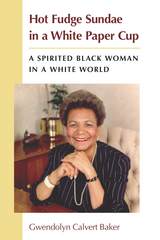
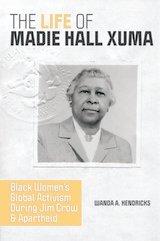
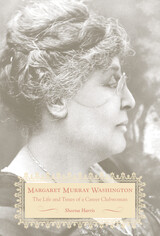
Born enslaved in 1861, by 1892 Margaret Murray Washington of Macon, Mississippi, married the twice-widowed race leader Booker T. Washington and joined the ranks of the rising black middle class. While one cannot discount the accomplishments of her storied husband, Washington’s own successes warrant further exploration. In this first biography of Margaret Murray Washington, author Sheena Harris discusses Washington’s importance as an active clubwoman, educational reformer, and integral partner to her husband and his success with the Tuskegee Institute.
Individual black, female leadership continues to be a blind spot in much scholarly historical literature. Washington was an important educator and clubwoman whose influence emanated from her own planning and actions. As Lady Principal, Washington was sincere and earnest in her campaign to improve Tuskegee Institute. She also transformed her community through her local club organizations. In addition, Washington cofounded the National Federation of Afro-American Women (1895) and the National Association of Colored Women (NACW) (1896). Harris illustrates how Washington improved race relations as a whole through local and national organizations such as the Tuskegee Woman’s Club, the NACW, and 1922 creation of the International Council of Women of the Darker Races (ICWDR). Harris explains clearly that Washington took her leadership positions seriously and strategically worked to expand opportunities for blacks through such organizations.
Washington’s life provides a glimpse into the inner workings of the Black Women’s Club Movement and illuminates the experiences of a race woman who came of age during the Jim Crow South. Harris’s biography is a convincing portrait of an under-studied black woman in the early civil rights movement and places Washington within the pantheon of other important women of the era.
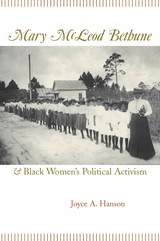
Mary McLeod Bethune was a significant figure in American political history. She devoted her life to advancing equal social, economic, and political rights for blacks. She distinguished herself by creating lasting institutions that trained black women for visible and expanding public leadership roles. Few have been as effective in the development of women’s leadership for group advancement. Despite her accomplishments, the means, techniques, and actions Bethune employed in fighting for equality have been widely misinterpreted.
Examining the historical evolution of African American women’s activism in the critical period between 1920 and 1950, a time previously characterized as “doldrums” for both feminist and civil rights activity, Mary McLeod Bethune and Black Women’s Political Activism is important for understanding the centrality of black women to the political fight for social, economic, and racial justice.
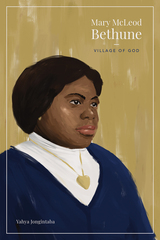
Mary McLeod Bethune was born on May 10, 1875, in a log cabin in rural Sumter County, South Carolina. She was the fifteenth child among seventeen siblings but the first born free of the bonds of slavery. As a child she attended a Presbyterian mission school in nearby Mayesville and Scotia Seminary in Concord, North Carolina. After some years at Scotia she was admitted in 1894 to the Moody Bible Institute in Chicago. Her two years of training at Moody did not lead to missionary work in Africa, as she had dreamed, but to missionlike teaching positions in the South and eventually her founding, in 1904, of the Daytona Normal and Industrial Institute for Girls, in Daytona Beach, Florida. That institution would grow to the present-day Bethune-Cookman University.
In this religious biography, author Yahya Jongintaba traces Bethune’s life of service in lively prose, structuring his book in a five-part framework that organizes his subject’s life in parallel with the Lord’s Prayer and virtues identified by Bethune herself: freedom, creativity, integrity, discipline, and love. With unfettered access to Bethune’s personal archive, Jongintaba paints a picture of a mother figure and mentor to generations, a nearsaint who lived “a blameless life for four-score years.” With deep empathy and the kind of “spiritual understanding” that Bethune had despaired of finding in a biographer in her own lifetime (despite attempts by publishers and herself to find just the right person), Jongintaba endeavors to achieve in his biography what Bethune wrote that she hoped to accomplish in an autobiography that never materialized: to “give to the world the real Mary McLeod Bethune’s life as I have lived it.”
READERS
Browse our collection.
PUBLISHERS
See BiblioVault's publisher services.
STUDENT SERVICES
Files for college accessibility offices.
UChicago Accessibility Resources
home | accessibility | search | about | contact us
BiblioVault ® 2001 - 2024
The University of Chicago Press









